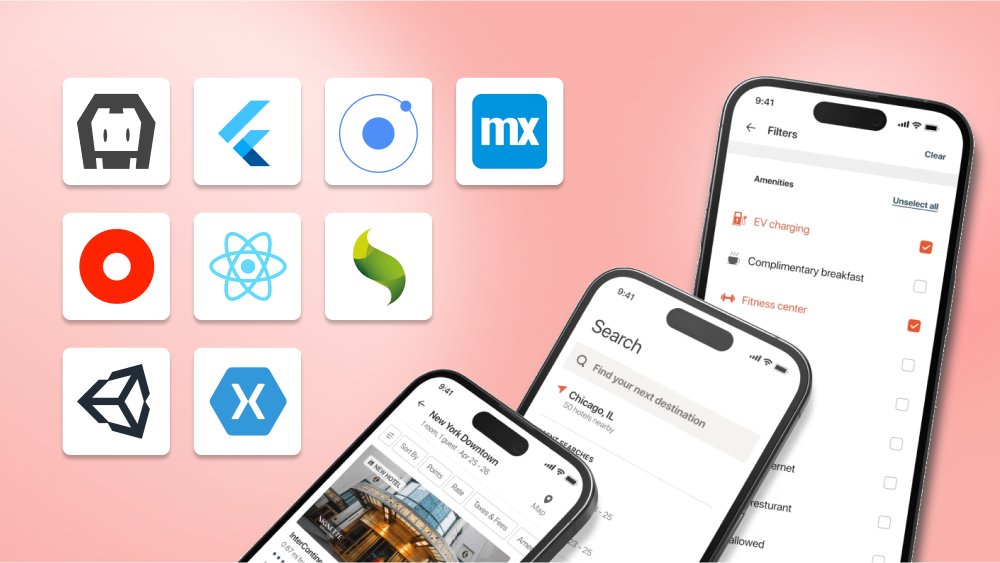The Risks and Rewards of Cryptocurrency Wallet Development

Content Map
More chaptersCryptocurrency has become a global phenomenon, with increasing numbers of people investing in digital assets every day. As a result, the demand for secure and reliable cryptocurrency wallets has skyrocketed. Cryptocurrency wallet development can be a lucrative business opportunity, but it can also come with significant risks.
According to a report by CNN, cryptocurrency thefts, hacks, and frauds resulted in losses of $1.9 billion in 2020 alone. This highlights the importance of developing a secure and reliable crypto wallet. However, developing a crypto wallet app is not without its challenges. From navigating the complex regulatory landscape to ensuring the security and scalability of the wallet, there are many factors to consider.
On the other hand, the benefits of a successful crypto wallet app development are noteworthy. With the global cryptocurrency market projected to reach $32.4 trillion by 2027, there is a huge potential for growth and profitability. Additionally, crypto wallet development can provide businesses with a competitive edge, as well as opportunities for innovation and differentiation.
This comprehensive guide will provide you with a better understanding of the risks and rewards of cryptocurrency wallet app development and help you be better equipped to make informed decisions about your business’s involvement in this exciting and rapidly evolving field.
Get to Know Cryptocurrency Wallets
Crypto wallet development services play a vital role in the world of digital currencies, giving users a convenient and secure method to store, manage, and transact their cryptocurrencies. Understanding the fundamentals of cryptocurrency wallets is essential for any individual venturing into the realm of digital assets.
Definition and Purpose of Cryptocurrency Wallets
Cryptocurrency wallets can be best described as virtual wallets for digital assets, enabling users to send and receive various cryptocurrencies like Bitcoin, Ethereum, or Litecoin. Unlike traditional wallets that hold physical cash and cards, cryptocurrency wallets store the private keys necessary to access and manage one’s digital assets on the blockchain. Private keys are essentially cryptographic codes that allow users to prove ownership and control over their cryptocurrencies. The fundamental purpose of a cryptocurrency wallet is to offer users a safe and user-friendly method to manage, store, and make transactions with their digital currencies.
Different Types of Crypto Wallets
There are multiple types of cryptocurrency wallets, each offering its own unique features and level of security.
- Software Wallets (hot wallets): Software wallets are the most popular type of cryptocurrency wallets. They come in different forms: desktop, mobile crypto wallet, or web wallet. While desktop wallets are downloaded and installed on a computer, mobile wallets are crypto wallet apps that can be installed on smartphones. Web wallets are hosted online and accessed through a web browser. Popular software wallets include Bitcoin Wallet, Coinbase Wallet, and Exodus Wallet. They are convenient for making quick transactions but may be vulnerable to hacking.
- Hardware Wallets (cold wallets): Hardware wallets are physical devices that store private keys offline, making them more secure than software wallets. They are immune to malware and can be used to sign transactions offline. They are well-suited for keeping significant quantities of cryptocurrency. Popular hardware wallets include Ledger and Trezor.
- Paper Wallets: Paper wallets are a type of cold storage wallet that involves printing the public address and private key on a piece of paper. They are not internet-connected, which makes them extremely safe. However, they can be lost or damaged, so it’s essential to keep them in a safe place.
Regardless of the type of wallet chosen, ensuring wallet security and private key management are critical aspects of cryptocurrency ownership. Private keys are the only way to access and control cryptocurrencies, so it’s essential to keep them safe and secure.
Risks Associated with Cryptocurrency Wallet Development

Cryptocurrency wallet development is a complex process that involves various risks and challenges. Here are some of the most significant risks that a crypto wallet development company may encounter:
Security Vulnerabilities
One of the most significant risks associated with cryptocurrency wallet development solutions is the presence of security vulnerabilities. Malware and phishing attacks pose significant threats to the security of cryptocurrency wallets. Malicious actors often employ techniques such as malware-infected websites or phishing schemes to trick users into revealing their private keys or login credentials.
Hacking and theft risks are also prevalent in the cryptocurrency space. Wallets connected to the internet are susceptible to hacking attempts, especially if their security measures are not robust. Hackers can exploit potential vulnerabilities in the wallet software or infrastructure to gain unauthorized access and steal the cryptocurrencies stored within the wallet.
Insider threats and compromised infrastructure pose additional security risks to cryptocurrency wallets. Cryptocurrency wallet development companies may face internal security breaches, where rogue employees or contractors exploit vulnerabilities to gain unauthorized access to users’ wallets. Similarly, compromised infrastructure, whether due to a cyberattack or inadequate security measures, can compromise the security of the wallets.
Regulatory and Compliance Challenges
Cryptocurrency wallet development is subject to various regulatory and compliance challenges. The evolving legal and regulatory landscape revolving around cryptocurrencies can present complexities for wallet developers. Different jurisdictions have different regulations, and staying compliant with these regulations can be a challenging task.
Anti-money laundering (AML) and Know Your Customer (KYC) requirements are crucial compliance measures imposed on cryptocurrency-related businesses, including wallet developers. These requirements aim to prevent and limit illicit activities, including money laundering and terrorist financing.
Compliance with tax regulations is another significant challenge for cryptocurrency wallet development companies. Cryptocurrency transactions may be subject to tax obligations in certain jurisdictions. Failure to comply with tax regulations can result in financial and legal consequences for both the wallet developers and their users.
User Experience and Adoption Challenges
User experience and adoption challenges can hinder the widespread acceptance and usage of cryptocurrency wallets. Complex user interfaces and technical barriers can make it challenging for less tech-savvy individuals to navigate and utilize wallets effectively. The intricate nature of cryptocurrency wallets, including the management of public and private keys, can lead to user errors or difficulties in performing transactions.
The lack of user-friendly features and functionalities is another challenge faced by cryptocurrency wallets. Traditional financial applications often offer user-friendly features and functionalities that users have grown accustomed to. The absence of these features in cryptocurrency wallets can deter users from embracing digital currencies.
Limited acceptance and adoption by merchants is also a challenge for cryptocurrency wallets. Although the acceptance of cryptocurrencies by merchants has been growing, it is still limited compared to traditional payment methods. The limited availability of merchants accepting cryptocurrencies can restrict the usability and adoption of cryptocurrency wallets.
Rewards of Cryptocurrency Wallet Development

Besides the above-mentioned risks, cryptocurrency wallet development offers a multitude of rewards for individuals and businesses alike. Embracing this modern technology opens up a world of possibilities and benefits that can transform the way we manage and interact with our finances.
Financial Inclusion and Empowerment
One of the most significant rewards of cryptocurrency wallet development is the potential for financial inclusion and empowerment. Traditional banking services often have limitations, leaving a significant portion of the global population unbanked or underbanked. Cryptocurrency wallets provide an alternative solution by enabling access to online financial services for those who are excluded from the traditional banking system.
With cryptocurrency wallets, individuals can securely store and manage their digital assets without the need for a physical bank account. With the lower crypto wallet development cost, individuals who were previously excluded from the financial system can now securely store, manage, and transact their digital assets, paving the way for greater financial independence and economic participation.
Moreover, cryptocurrency wallets facilitate peer-to-peer transactions and cross-border payments. By leveraging blockchain technology, individuals can send and receive funds directly without intermediaries or costly remittance services. This not only reduces transaction costs but also accelerates the speed of cross-border transfers, making it more accessible for individuals and businesses around the world.
Control and Ownership of Assets
Another significant reward of cryptocurrency wallet development is the empowerment it brings to individuals by providing them with full control and ownership of their funds. Unlike traditional financial systems, where individuals must rely on intermediaries and third-party institutions to manage their assets, cryptocurrency wallets give users complete control over their digital currencies.
By using private keys and encryption techniques, cryptocurrency wallets ensure that only the wallet owner can access and manage their funds. This eliminates the threat of funds being frozen, seized, or controlled by external entities. Individuals can confidently manage their assets, knowing that they have ultimate control over their financial resources.
Potential for Investment and Growth
Cryptocurrency wallet development also opens up exciting opportunities for investment and growth. As the popularity and adoption of cryptocurrencies and blockchain technology continue to soar, individuals have the potential to invest in various digital assets and blockchain projects.
Cryptocurrencies have demonstrated their ability to generate significant returns on investment, with some early adopters reaping substantial profits. By having a cryptocurrency wallet, individuals can participate in Initial Coin Offerings (ICOs) and invest in promising blockchain projects, potentially benefiting from the growth and success of these ventures in the long term.
Furthermore, cryptocurrency wallets provide individuals with the flexibility to diversify their investment portfolios, exploring different cryptocurrencies and tokens that align with their investment strategies and risk appetite. This opens up a world of possibilities for individuals to explore emerging digital assets and contribute to the growth and development of the blockchain ecosystem.
Future Trends and Considerations
As the world of cryptocurrency continues to evolve, it is essential to stay informed about the future trends and considerations surrounding cryptocurrency wallets.
Emerging Technologies
The future of cryptocurrency wallets will undoubtedly be shaped by emerging technologies. Advancements in areas such as artificial intelligence (AI), machine learning, and biometrics have the potential to enhance the security, usability, and functionality of cryptocurrency wallets.
AI-powered algorithms can help detect and prevent fraudulent activities, while machine learning algorithms can provide personalized recommendations and insights to wallet users. Biometric authentication methods, including facial recognition or fingerprint, can add an extra layer of security to wallet access.
Integration with Decentralized Finance (DeFi)
Decentralized finance (DeFi) has gained notable traction in recent years, offering innovative financial applications built on blockchain technology. Cryptocurrency wallets are expected to integrate more seamlessly with DeFi protocols, enabling users to access a wide range of decentralized financial services such as lending, borrowing, yield farming, and staking directly from their wallets. This integration will provide users with greater control and flexibility over their digital assets, fostering the growth of peer-to-peer financial ecosystems.
Shift Towards Multi-currency Wallets
As the cryptocurrency landscape continues to expand, there is a growing demand for wallets that support multiple digital currencies. Single-currency wallets are being replaced by multi-currency wallets that offer users the convenience of managing various cryptocurrencies within a single interface. This shift towards multi-currency wallets is driven by the increasing diversity of cryptocurrencies and the desire for streamlined asset management.
Additionally, interoperability among different blockchain networks is gaining attention. Interoperable wallets allow users to seamlessly transact and transfer assets across multiple blockchains, eliminating the need for multiple wallets and enhancing user experience.
Conclusion
If you’re considering developing a cryptocurrency wallet for your business, it’s important to choose a reliable and experienced software development partner. Orient Software has a proven track record of delivering high-quality software development services. Our team of experts has the skills and experience necessary to develop a secure and reliable cryptocurrency wallet that meets your business needs.
At Orient Software, we understand the complexities of cryptocurrency wallet development and the importance of security and reliability. That’s why we use the latest technologies and best practices to ensure that your cryptocurrency wallet is secure, scalable, and easy to use.
Whether you’re looking to develop a new cryptocurrency wallet or upgrade an existing one, Orient Software has the expertise and experience to help you succeed. Contact us today to learn more about how we can help you take your business to the next level. With Orient Software as your software development partner, you can rest assured that your cryptocurrency wallet is in good hands.







